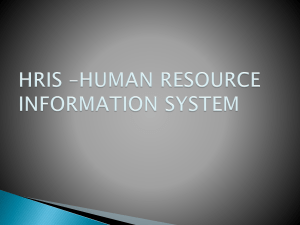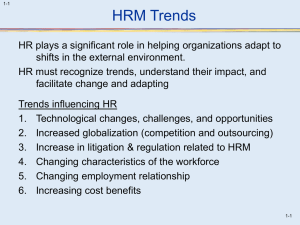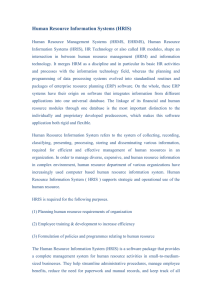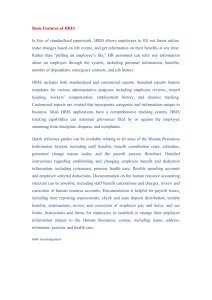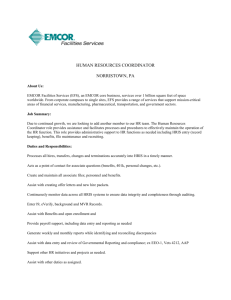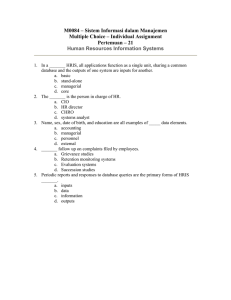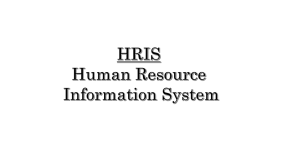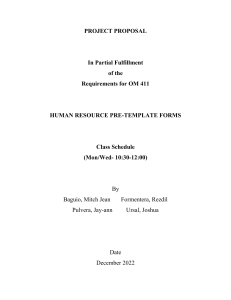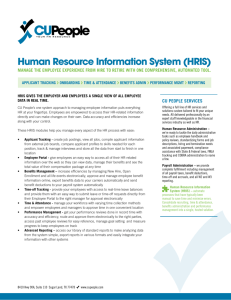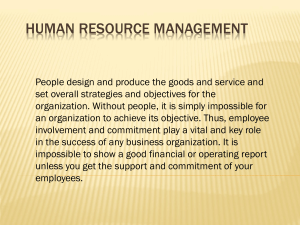Chapter 1: Introduction of Human Resource Information System
advertisement
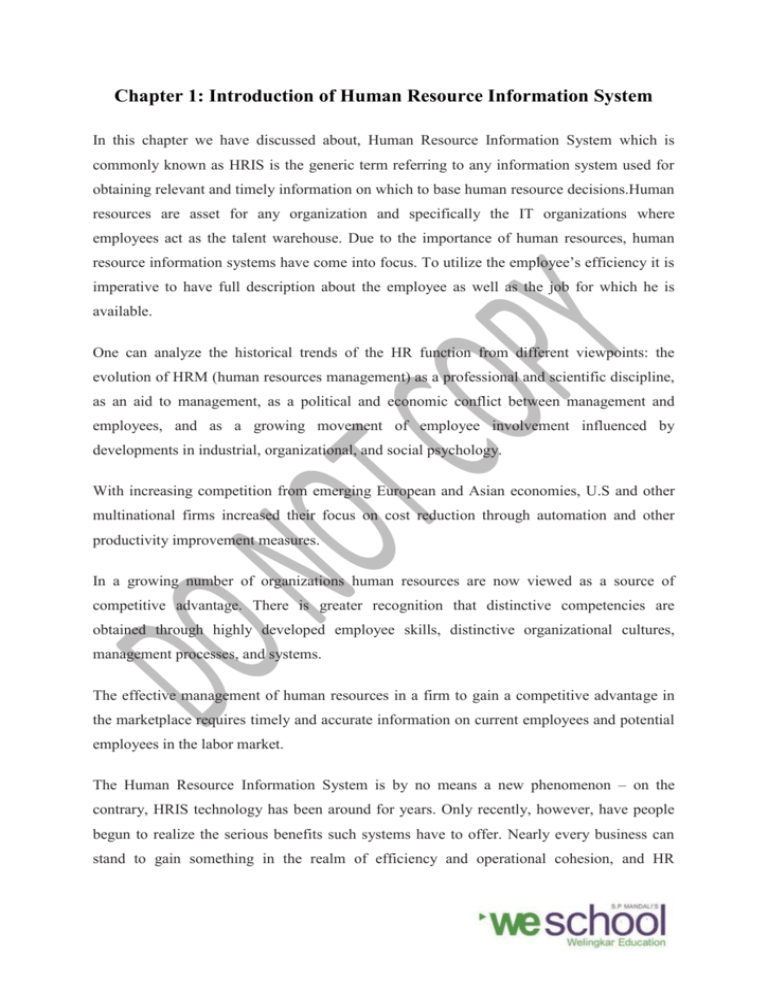
Chapter 1: Introduction of Human Resource Information System In this chapter we have discussed about, Human Resource Information System which is commonly known as HRIS is the generic term referring to any information system used for obtaining relevant and timely information on which to base human resource decisions.Human resources are asset for any organization and specifically the IT organizations where employees act as the talent warehouse. Due to the importance of human resources, human resource information systems have come into focus. To utilize the employee’s efficiency it is imperative to have full description about the employee as well as the job for which he is available. One can analyze the historical trends of the HR function from different viewpoints: the evolution of HRM (human resources management) as a professional and scientific discipline, as an aid to management, as a political and economic conflict between management and employees, and as a growing movement of employee involvement influenced by developments in industrial, organizational, and social psychology. With increasing competition from emerging European and Asian economies, U.S and other multinational firms increased their focus on cost reduction through automation and other productivity improvement measures. In a growing number of organizations human resources are now viewed as a source of competitive advantage. There is greater recognition that distinctive competencies are obtained through highly developed employee skills, distinctive organizational cultures, management processes, and systems. The effective management of human resources in a firm to gain a competitive advantage in the marketplace requires timely and accurate information on current employees and potential employees in the labor market. The Human Resource Information System is by no means a new phenomenon – on the contrary, HRIS technology has been around for years. Only recently, however, have people begun to realize the serious benefits such systems have to offer. Nearly every business can stand to gain something in the realm of efficiency and operational cohesion, and HR information software is designed to provide exactly those improvements. HRIS gives firms several other benefits and advantages. They include the following: Increasing competitiveness by improving HR operations and management processes Producing a greater number and variety of accurate and real-time HR-related reports Shifting the focus of HR from the processing of transactions to strategic HRM Improving employee satisfaction by delivering HR services more quickly and accurately

